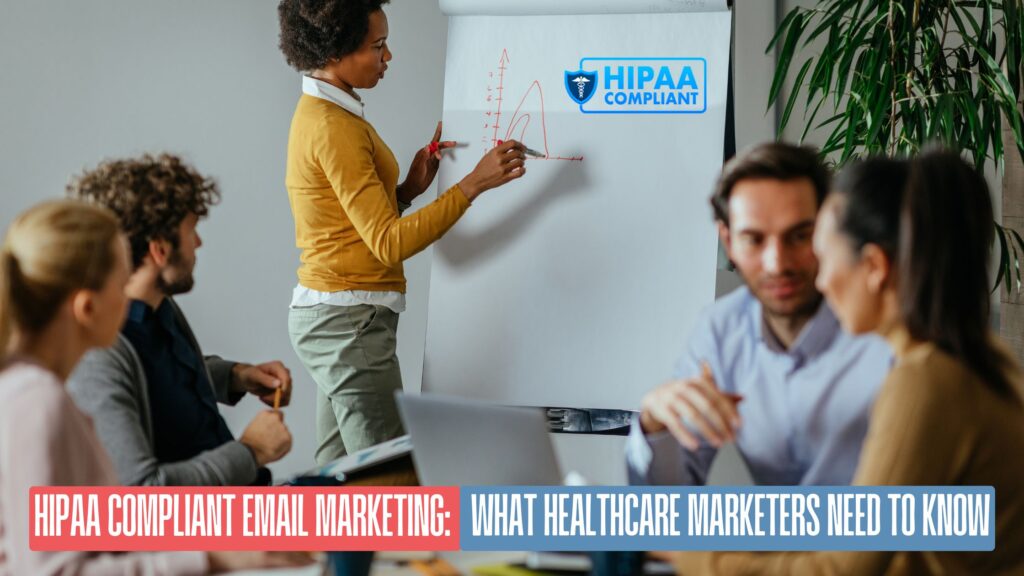Email marketing remains one of the most powerful tools for engaging patients, nurturing leads, and growing healthcare organizations. However, when you operate in the U.S. healthcare industry, you can’t send just any email campaign. You need to ensure your marketing practices comply with the Health Insurance Portability and Accountability Act (HIPAA) – the federal law that protects the privacy and security of patients’ health information.
For healthcare marketers, understanding HIPAA compliance isn’t optional it’s essential. Mishandling patient information can result in hefty fines, legal consequences, and severe reputational damage. In this article, we’ll break down what HIPAA compliance means for email marketing, what you can and can’t do, and how to build effective campaigns without putting your organization at risk.
Why HIPAA Compliance Matters in Email Marketing
HIPAA was enacted in 1996 to establish national standards for protecting sensitive patient health information, also known as Protected Health Information (PHI). PHI includes any data that can identify a patient—like names, addresses, Social Security numbers, and medical records—and any health-related details linked to them.
When you send marketing emails to patients, you may be handling PHI if the email references their care, conditions, treatment plans, or even the fact that they are patients of your organization. If this information is not properly secured, you risk a data breach.
The U.S. Department of Health and Human Services (HHS) can impose civil penalties for HIPAA violations, which can range from hundreds to millions of dollars depending on the severity. Beyond fines, breaches can erode patient trust—a critical asset in healthcare marketing. That’s why building HIPAA compliance into your email marketing strategy is non-negotiable.
Key Rules Healthcare Marketers Must Follow
To send HIPAA-compliant marketing emails, healthcare marketers must understand and implement a few key rules:
1. Obtain Patient Consent (Authorization)
HIPAA generally requires explicit written consent from patients before using their PHI for marketing purposes. This authorization should clearly state how their information will be used and allow them to opt out at any time.
Example: If you want to send promotional emails about a new service line, you must have prior patient authorization to use their PHI for that purpose.
2. Use HIPAA-Compliant Email Platforms
Standard email platforms like Gmail or Outlook are not automatically HIPAA compliant. Healthcare organizations must use an email marketing service that offers HIPAA compliance features and is willing to sign a Business Associate Agreement (BAA)—a legal document stating that the vendor will safeguard PHI according to HIPAA standards.
Platforms built for healthcare often include encryption, secure data storage, and access controls. Without a signed BAA, you should not send PHI through a vendor.
3. Encrypt Emails Containing PHI
Encryption ensures that any PHI sent via email is unreadable to unauthorized parties if intercepted. HIPAA’s Security Rule requires covered entities and business associates to use technical safeguards like encryption when transmitting PHI electronically.
This means using end-to-end encryption and secure connections (TLS/SSL) for all marketing communications that could involve PHI.
4. Limit the Use of PHI Whenever Possible
The safest way to stay compliant is to minimize PHI in marketing emails altogether. Use general content that is not tied to an individual’s treatment or medical status.
Example: Instead of saying “Here’s a follow-up on your diabetes care plan,” say “Check out our new educational resources on managing diabetes.”
5. Provide Opt-Out Mechanisms
All marketing emails must comply with CAN-SPAM Act rules and offer a clear way to unsubscribe. For HIPAA purposes, if a patient revokes their consent to receive marketing, you must honor that choice promptly and remove them from future campaigns involving PHI.
Marketing vs. Transactional Emails Under HIPAA
It’s important to distinguish between marketing emails and transactional emails.
-
Marketing emails promote products or services not directly tied to the patient’s existing treatment and require explicit authorization.
-
Transactional emails are part of regular care operations—such as appointment reminders, billing notices, or prescription refills. These typically do not require patient authorization but must still follow HIPAA’s security requirements.
Knowing the difference helps you determine which safeguards and permissions are necessary.
Best Practices for HIPAA-Compliant Email Campaigns
Following HIPAA requirements doesn’t mean you can’t run effective email marketing campaigns. Here are a few best practices to keep your efforts both secure and impactful:
-
Segment Your Audiences Carefully – Use non-PHI attributes (like zip code, general interests, or age ranges) when creating targeted lists.
-
Train Your Marketing Team – Make sure everyone involved understands HIPAA rules, what counts as PHI, and how to handle sensitive data.
-
Implement Access Controls – Only authorized personnel should have access to PHI or email marketing tools that store PHI.
-
Audit and Monitor Regularly – Conduct periodic security audits and review your email campaigns to ensure compliance is maintained.
-
Document Everything – Keep records of patient authorizations, email platform BAAs, and compliance procedures. These can be critical during audits or investigations.
The Bottom Line
HIPAA compliance doesn’t have to be a barrier to effective healthcare marketing—it simply requires planning, the right tools, and a commitment to protecting patient privacy. By securing proper authorizations, using HIPAA-compliant email platforms, encrypting messages, and limiting PHI, healthcare marketers can build trust while driving engagement.
In the competitive U.S. healthcare landscape, patient trust is everything. A breach can undo years of brand-building overnight, while a compliant, respectful email strategy can enhance your reputation and patient relationships. Treat HIPAA compliance not as a box to check, but as a cornerstone of your marketing ethics—and your campaigns will be stronger for it.
Visit our website Med Stream Data for more healthcare industry related information!







